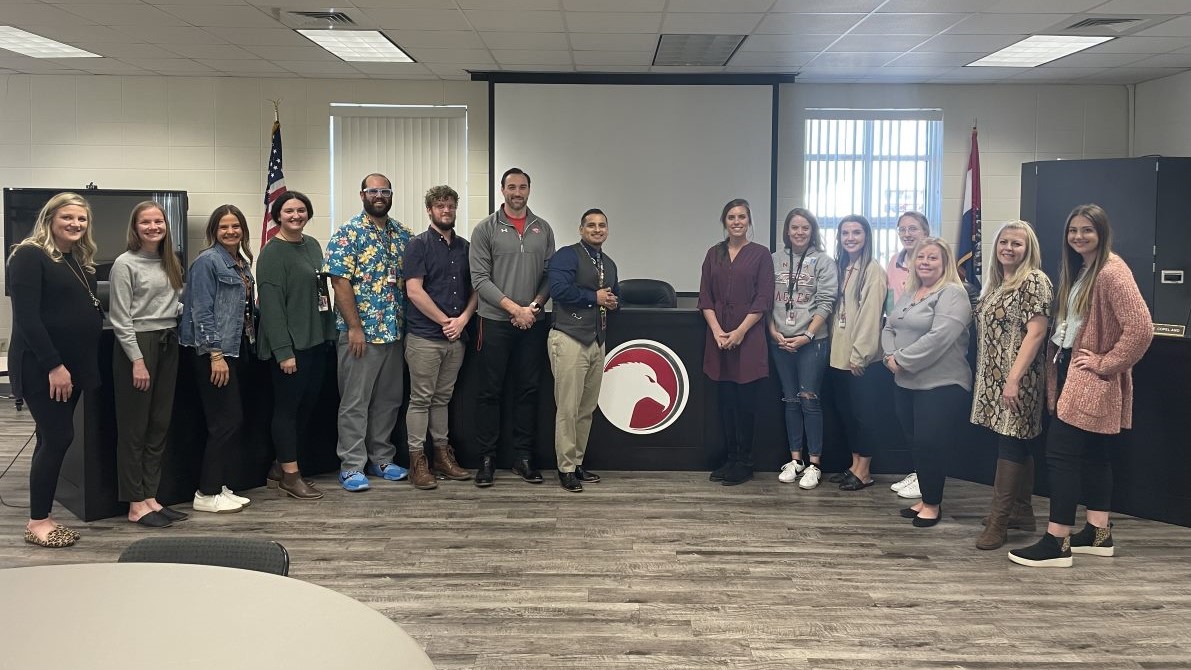Shifting from being a teacher to an administrator can bring a lot of changes. There are also many benefits to knowing both fields, no matter which one you work in.
The College of Education’s department of counseling, leadership and special education collaborates with local school districts to create cohorts of educators who earn their master’s in educational administration.
“If a district can foresee that there are going to be job openings within the community, they can encourage people with good leadership skills in their district toward that role,” explained Dr. Kim Finch, director of the educational administration program.
“Our program is also good for the classroom teacher. The coursework gives an awareness of what takes place in the office and why things may be handled the way they are.”
The cohort model
One of the benefits of the cohort model for educational administration is that districts can personalize the curriculum for their faculty.
Twelve hours of the degree are earned as credit-by-assessment and are taught by the district.
“We send them our syllabus along with our assignments. This allows them to tweak it so that it can better align with their district,” Finch explained. “Sometimes those assignments might be projects that the school board requested.”
Students within the cohorts save money on tuition since they earn 12 credit hours through their district.
Nixa Public Schools (NPS) currently participates in the program.
“This partnership with MSU is mutually beneficial for our students and district alike,” said Josh Chastain, executive director of curriculum, instruction and assessment at NPS. “Students benefit financially, and our district gains dedicated, highly trained and NPS-focused administrative candidates.
“MSU wants to support our teachers in their graduate endeavors and make sure our students are able to receive necessary professional learning.”
Contact Dr. Kim Finch about forming a cohort
Encouraging educators
A master’s in educational administration allows teachers to earn a salary increase in addition to their certification to become an administrator.
“Sometimes people who go through our program just want a master’s degree,” Finch said. “But we encourage everyone to get certified. Down the road, you may want to apply for an opening, and you will already have obtained the right classes and assessments.”
Missouri needs more teachers and administrators right now, so Finch said it’s important to have professional development accessible to educators and future educators.
She emphasized the necessity for building positive relationships with students in the program and highlighting the positive things happening across the field of education.
“Education is the background for everything, whether you want to be a doctor, a banker or whatever. If we don’t have a good education system, then all other professions will be affected.”

